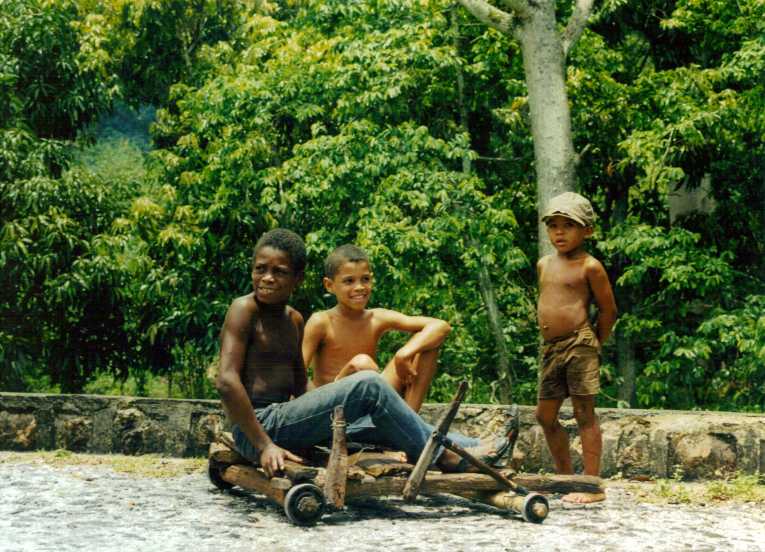Whether the blame lies with America's 60 year old trade embargo or just bad government, the fact is that for decades the people of Cuba have had to learn how to cope with limited resources. The current economic situation is so bad that even essential items such as soap and toothpaste have been erased from the already meagre ration books.
But out of this bleak scenario has emerged some remarkable ingenuity. Cuba is renowned for the adaptability of its people; and no where is it shown more poignantly than when it comes to recycling. In a country where the average monthly wage is just £10, it's often a question of survival and as a result, necessity has become the mother of all invention.
Just about everything in Cuba is collected and recycled. Rum bottles cut down to size to serve as drinking glasses, CD cases make picture frames, iconic Cuban cigar labels make coasters and bookmarks, even plastic bags are washed, hung out to dry and reused.
But if you really want in to experience at first hand the Cuban's ingenuity for improvisation, just take a taxi. It's a ride which will take you on a journey of recycled materials and energy saving that is stretched to the very limits.
The sign atop the 30 year old Soviet-era Lada, looks remarkably like a plastic gallon container painted yellow with the word Taxi written in black, which is because it is.

No door handle? No problem. Your driver will undo the rope allowing you to slip inside before retying the knot, ensuring he doesn't lose you en route. Start her up by lifting the bonnet and applying a screwdriver across the terminals of the starter motor where the solenoid once sat. Then with the engine spluttering into life, quickly open the boot and pull the fuel lead out of the gas tank and into a large plastic container which contains a foul smelling substance that somebody probably distilled in their back garden.
And you're off, backfiring and coughing your way across pot holed, rutted and pock marked roads, in surprising comfort; because the seat springs that have long since rusted and broken have been replaced by horsehair and the seat covers by a patchwork of jeans material and assorted fabrics.

Stop at a set of traffic lights and the door will open and a complete stranger will get in and sit beside you without so much as a hello (or 'hola'). In Cuba it is obligatory for drivers to pick up passengers waiting by the side of the road, bringing a whole new meaning to the idea of car sharing.
Head out toward the suburbs and a long stretch of welcoming, relatively smooth road, as soon as the road starts going downhill you suddenly feel like you're silently gliding; which is due to the fact that the driver has switched off both lights and engine to preserve fuel and prolong battery life.
When you (hopefully) arrive at your destination in one piece and alight onto the pavement uttering your prayers and thanks to the almighty, only then should you remind yourself that with brake fluid almost impossible to find, your average motor vehicle relies on washing up liquid mixed with sugar to stop you in the event of an emergency.
It's all too easy for people to criticise these ancient, decrepit, polluting vehicles. In an ideal world every Cuban would be driving electric cars, complete with airbags, catalytic converters and door handles that work, but like many other developing and emerging countries they have to make do with very little.
Recycling is everywhere in Cuba. Born out of necessity and ensuring that very little goes to waste; a humbling and salutary lesson for us all.
Viva la Revolucion! Viva Recycling!

Photographs by Nick St Clair.










